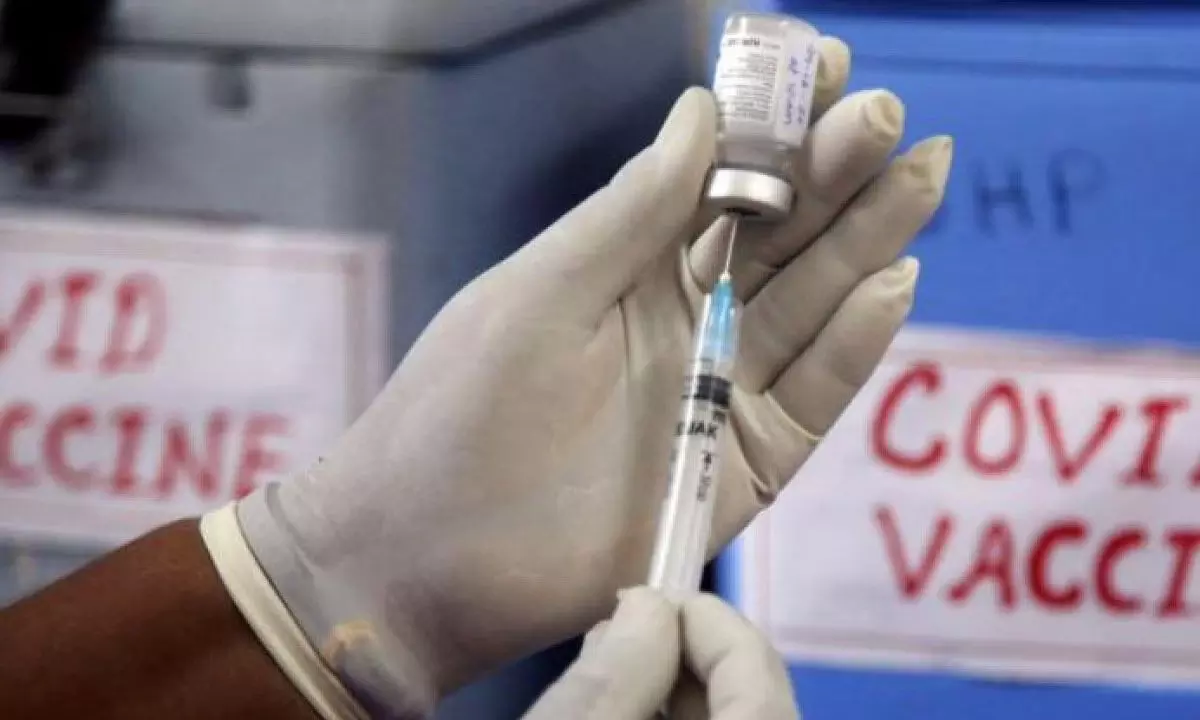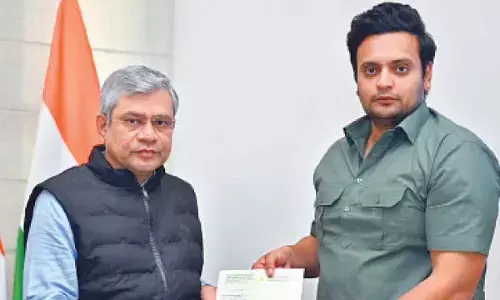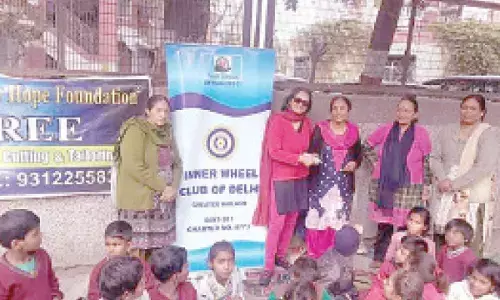No one is safe until all are vaccinated for Covid

No one is safe until all are vaccinated for Covid
Vaccine inequity remains an issue both within India, where less than 2 per cent of the population has received a Covid booster, and the globe with 56 countries unable to inoculate even 10 percent of their people, says Johns Hopkins scientist Amita Gupta
New Delhi: Vaccine inequity remains an issue both within India, where less than 2 per cent of the population has received a Covid booster, and the globe with 56 countries unable to inoculate even 10 percent of their people, says Johns Hopkins scientist Amita Gupta. Tracking hospitalisation rates which provide an indicator of severity of illness is key, the chief of the Division of Infectious Disease, and Professor of Medicine at Johns Hopkins University School of Medicine said while stressing that no one is safe from Covid until everyone in the world gets vaccinated.
She cited the example of the Omicron variant to buttress her point.
The highly transmissible variant is believed to have emerged in November last year in South Africa and Botswana due to inadequate immunisation in African countries before spreading globally, Gupta said, adding that another variant is likely to follow the same trend.
"Global vaccine inequity remains an issue both within India and globally. For example, in the continent of Africa less than 20 per cent of the population is currently vaccinated and there are countries in Africa still with less than 2 per cent vaccinated," Gupta said in an email interview.
As immunities wane and new Covid variants emerge, it is more important than ever that communities are fully vaccinated and boosted, she said.
"It is not enough to fully vaccinate only a few countries. Health workers and highest-risk populations in all countries must be fully vaccinated to stop the pandemic," she added.
In India, Gupta said, there are some hard to reach areas and there is urgent need to increase booster vaccination for those who are eligible. "It is hard to predict whether further mutations in SARS-CoV-2 will increase or decrease the intrinsic virulence of the virus or the severity caused by it," the public health expert said.
"What we do know is that no one is safe from COVID-19 until everyone in the world is safe. The vast majority of vaccines have been administered in high- and upper-middle-income countries. Fifty-six countries have been effectively excluded from the global vaccine marketplace and have not been able to vaccinate even 10 per cent of their population," she added.
A large, densely populated country like India must ensure that the population has some measure of protection against severe disease -- either through immunization or previous infection.
As immunities wane and variants emerge, Gupta said it is more important than ever that communities are fully vaccinated and boosted. "Less than 2 per cent of the population (in India) currently has received a Covid booster even though there is no shortage of supply. This number needs to increase."
The cumulative number of Covid-19 vaccine doses administered in India crossed 187 crores on Wednesday, according to the Union Health ministry. The total number of precaution doses given to adults stands at 2,35,786 (2.3 lakh).
Going forward, Gupta anticipates periodic increases in cases with new, more transmissible variants.
Tracking hospitalisation rates is pivotal
While some countries like the UK are seeing local increases in the number of cases, hospitalisations are not increasing significantly and health systems are managing the increases. "Anticipate a similar situation will occur in India with these current sub variants. It is possible that India could face another surge but will be better prepared as people are more aware, systems have been strengthened and surveillance is ongoing," she added.
The pandemic, Gupta noted, is still not over and it is difficult to predict when new variants will emerge and how these strains will behave. "We should continue close surveillance for early detection of Covid cases through existing surveillance networks in the country and be prepared to trigger recommendations to resume masking, social distancing if and when surges occur," she said.
According to the World Health Organization, BA.2, a more contagious Omicron sub variant, is now driving most coronavirus cases around the world. Gupta said the new variants are more transmissible than previous variants and an increase of cases is being observed. "Vaccines continue to protect against manifestations of severe disease. Future morbidity and mortality depend on age demographics, weariness to guidelines, and vaccine and booster intake," she said.
"Global vaccinations and accurate disease surveillance will reduce the infection rate. In India, 73 per cent received the first dose, 61 per cent two doses, and 1.7 per cent received a booster as of April 13 so continuing to encourage the remaining population to get vaccinated is important," Gupta explained.










